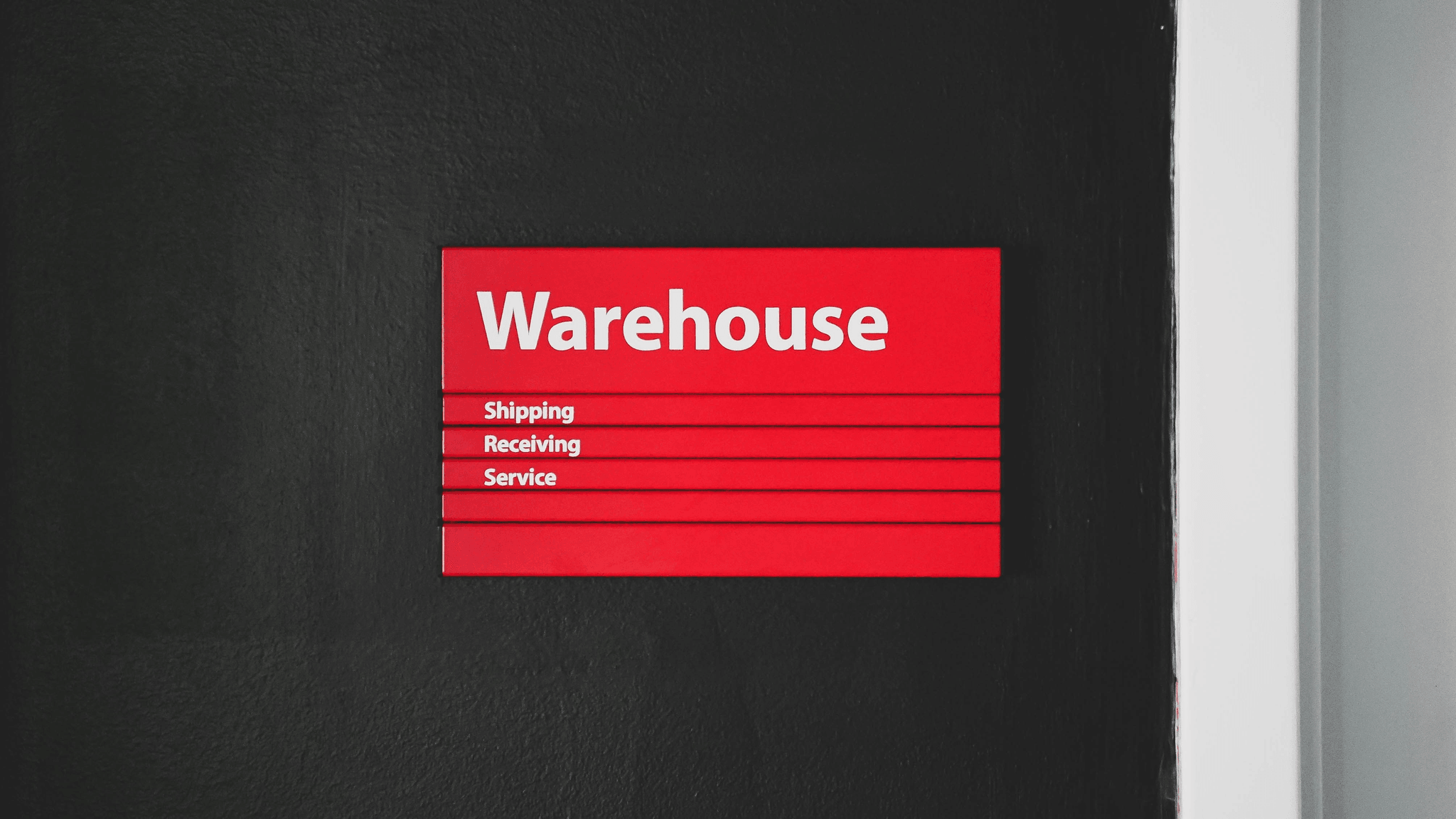Introduction
In the dynamic world of business, understanding vendor management key performance indicators (KPIs) is crucial for maintaining a competitive edge. These metrics serve as essential tools for assessing the efficiency and effectiveness of vendor relationships, enabling organizations to optimize their supply chains and enhance overall performance. By focusing on these KPIs, companies like SSOURCING INC. can make informed decisions that lead to improved vendor collaborations and better business outcomes.
Understanding Vendor Management Key Performance Indicators
Vendor management key performance indicators are quantifiable measures used to evaluate the success of vendor relationships. They provide insights into various aspects of vendor performance, including quality, cost efficiency, timeliness, and relationship management. By clearly defining these KPIs, businesses can establish benchmarks that align with their strategic goals and drive continuous improvement in vendor interactions.
Importance of Measuring Performance
Measuring performance through vendor management key performance indicators is vital for several reasons. First, it allows organizations to identify areas for improvement and address potential issues before they escalate into more significant problems. Additionally, tracking these KPIs fosters transparency in vendor relationships and encourages accountability on both sides—ensuring that vendors meet expectations while providing businesses with valuable data to inform future negotiations.
Overview of Essential KPIs
An effective vendor management strategy hinges on a well-rounded set of essential KPIs that cover various dimensions of performance. Key metrics often include product quality assessments, cost savings analysis, delivery timeliness rates, and collaboration effectiveness scores. By utilizing these indicators strategically within SSOURCING INC., companies can not only streamline their operations but also cultivate stronger partnerships with vendors that ultimately contribute to long-term success.
Defining Vendor Management Key Performance Indicators

When it comes to effective vendor management, understanding key performance indicators (KPIs) is crucial. KPIs in vendor management are measurable values that demonstrate how effectively a company is achieving key business objectives related to its suppliers. By focusing on these metrics, organizations can make informed decisions that enhance their relationships with vendors and ultimately drive better business outcomes.
What are KPIs in Vendor Management
Vendor management key performance indicators serve as benchmarks for evaluating the efficiency and effectiveness of supplier relationships. These metrics help organizations track performance over time, identify areas for improvement, and ensure alignment with overall business goals. In essence, KPIs act as a compass, guiding companies like SSOURCING INC. toward optimal vendor performance and strategic decision-making.
Examples of Key Performance Indicators
There are several essential vendor management key performance indicators that businesses should monitor closely. Common examples include on-time delivery rates, product quality scores, compliance with service level agreements (SLAs), and cost savings achieved through negotiations or process improvements. By tracking these KPIs consistently, companies can gain valuable insights into their vendor relationships and make data-driven adjustments when necessary.
Aligning KPIs with Business Goals
To maximize the impact of vendor management key performance indicators, it's vital to align them with overarching business goals. This alignment ensures that the metrics being tracked directly contribute to the organization's success and growth strategies. For instance, if a company's goal is to reduce operational costs, then focusing on cost-related KPIs will provide actionable insights that can lead to significant savings—something SSOURCING INC. aims for when optimizing its vendor partnerships.
Quality Metrics You Should Track

In the realm of vendor management, quality is not just a buzzword; it's a critical focus area that can significantly impact your business's success. By tracking quality metrics, organizations can ensure that their vendors consistently deliver products and services that meet or exceed expectations. This section delves into essential aspects of evaluating vendor quality, understanding service agreements, and measuring compliance standards, all pivotal to effective vendor management key performance indicators.
Evaluating Vendor Product Quality
When it comes to evaluating vendor product quality, the first step is to establish clear criteria for assessment. This involves setting specific benchmarks based on industry standards or customer expectations that align with your organization’s goals. Regularly reviewing these metrics not only helps in maintaining high-quality outputs but also informs adjustments needed in your vendor management key performance indicators.
Moreover, utilizing tools such as customer feedback surveys and product testing can provide valuable insights into how well vendors are performing against these established criteria. SSOURCING INC. encourages businesses to adopt a proactive approach by conducting periodic audits and assessments of products received from vendors. By doing so, you can identify any recurring issues early on and foster a culture of continuous improvement.
Lastly, tracking product return rates or defect rates can serve as crucial indicators of overall product quality provided by your vendors. These metrics directly feed into your vendor management key performance indicators framework and help you make informed decisions about future partnerships.
Understanding Service Level Agreements
Service Level Agreements (SLAs) form the backbone of any successful vendor relationship by clearly outlining expectations regarding service delivery and performance standards. Understanding SLAs is vital for establishing accountability within your vendor management framework; they define what constitutes acceptable service levels while providing a basis for measuring performance against agreed-upon metrics.
To effectively monitor SLAs, it’s essential to incorporate relevant KPIs such as response time, resolution time for issues raised, and overall service availability into your evaluation process. SSOURCING INC. recommends regular reviews of SLAs alongside actual performance data to identify any discrepancies or areas needing improvement within the scope of your vendor management key performance indicators.
Moreover, keeping an open line of communication with vendors regarding SLA expectations fosters transparency and trust in the relationship. This collaborative approach ensures both parties are aligned on objectives while enabling swift resolution should challenges arise—ultimately contributing positively to overall business outcomes.
Measuring Compliance and Standards
Compliance with industry regulations and internal standards is non-negotiable when managing vendors effectively—especially in sectors where safety or legal requirements are paramount. Implementing compliance checks as part of your vendor management key performance indicators allows you to gauge whether suppliers adhere to necessary practices consistently.
Regular audits should be conducted alongside compliance training sessions for both internal teams and external partners; this reinforces the importance placed on maintaining high standards across all operations involving third-party vendors. SSOURCING INC.'s commitment to excellence means prioritizing compliance measures that protect not only the company but also its customers from potential risks associated with non-compliance.
Additionally, leveraging technology through automated compliance monitoring tools can streamline this process significantly—providing real-time data on adherence levels while minimizing the manual effort involved in tracking these critical metrics over time. Ultimately, integrating compliance measures into your KPIs strengthens relationships with trustworthy vendors who align with organizational values while safeguarding long-term success.
Cost Efficiency in Vendor Management

In the realm of vendor management, cost efficiency is paramount. By effectively analyzing cost savings and ensuring adherence to budgets, businesses can significantly enhance their operational performance. This section delves into the various aspects of cost efficiency, highlighting how vendor management key performance indicators (KPIs) play a crucial role in this process.
Analyzing Cost Savings and Budget Adherence
Analyzing cost savings is not just about cutting corners; it's about maximizing value from your vendors. By tracking vendor management key performance indicators that focus on budget adherence, organizations can identify areas where they are overspending or where they could negotiate better terms. SSOURCING INC. emphasizes the importance of regularly reviewing these KPIs to ensure that you are not only saving money but also getting the best quality and service from your vendors.
Budget adherence involves a meticulous examination of spending against planned budgets, allowing for timely adjustments when necessary. When organizations implement effective vendor management key performance indicators, they can spot trends in spending and make informed decisions that align with financial goals. Ultimately, this analysis leads to more strategic partnerships with vendors and improved overall financial health.
Key Performance Indicators for Cost Effectiveness
Identifying the right KPIs is essential for measuring cost-effectiveness in vendor management. Commonly used vendor management key performance indicators include metrics like cost per unit delivered, invoice accuracy rates, and price variance analysis. These KPIs provide insight into how well vendors are meeting financial expectations while maintaining quality standards.
SSOURCING INC.'s approach to selecting KPIs focuses on those that directly impact bottom-line results without sacrificing service or product quality. For instance, tracking invoice accuracy can reveal discrepancies that may lead to unnecessary expenses if left unchecked. Moreover, establishing benchmarks allows organizations to compare their suppliers' performances against industry standards and make data-driven decisions.
The Role of Total Cost of Ownership
Total Cost of Ownership (TCO) is a vital concept in understanding the full financial impact of working with a vendor beyond just purchase price. It encompasses all costs associated with acquiring goods or services over their entire lifecycle—including maintenance, operation, and disposal costs—providing a comprehensive view of what a partnership truly entails. When evaluating TCO as part of your vendor management key performance indicators strategy at SSOURCING INC., you gain insights that help optimize supplier selection based on long-term value rather than short-term gains.
By incorporating TCO into your decision-making process, you can uncover hidden costs that might otherwise go unnoticed until it's too late—think maintenance fees or compliance penalties! This holistic view enables businesses to forge stronger relationships with vendors who offer not only competitive pricing but also superior long-term value propositions that align with organizational goals.
In conclusion, focusing on cost efficiency through thoughtful analysis and effective use of vendor management key performance indicators will empower businesses to make strategic decisions that benefit both their bottom line and operational effectiveness.
Timeliness and Delivery Performance

In the realm of vendor management key performance indicators, timeliness and delivery performance are critical metrics that can make or break a business relationship. Monitoring these aspects ensures that products and services are delivered as promised, which directly influences customer satisfaction and operational efficiency. With SSOURCING INC., focusing on these KPIs allows for better alignment with vendor capabilities and expectations.
Measuring On-Time Delivery Rates
On-time delivery rates are among the most essential vendor management key performance indicators to track. This metric quantifies the percentage of orders delivered by vendors within the agreed timeframe, providing insight into their reliability. By regularly assessing this KPI, businesses can identify trends, pinpoint issues, and foster discussions with vendors who may be falling short of expectations.
To effectively measure on-time delivery rates, it’s vital to establish clear benchmarks based on historical data or industry standards. This approach not only creates accountability but also helps in setting realistic goals for improvement. SSOURCING INC. advocates for integrating this KPI into regular performance reviews to ensure that all parties remain aligned on delivery expectations.
Identifying Delivery Compliance Issues
Identifying delivery compliance issues is another crucial aspect of managing vendor relationships through key performance indicators. These issues may arise when deliveries fall short in terms of quality, quantity, or timeliness—factors that can disrupt operations significantly. By tracking compliance against set standards, your organization can proactively address any discrepancies before they escalate into larger problems.
Utilizing tools like scorecards or dashboards to visualize compliance data helps in quickly identifying patterns or recurring issues with specific vendors. Regular communication about these findings fosters transparency and encourages vendors to take corrective actions promptly. At SSOURCING INC., we believe that addressing compliance issues head-on strengthens partnerships and enhances overall supply chain efficiency.
The Impact of Timeliness on Business
The impact of timeliness on business cannot be overstated; it affects everything from inventory management to customer satisfaction levels. When products arrive late or do not meet quality expectations due to delayed shipments, it can lead to lost sales opportunities and tarnished reputations—both detrimental outcomes for any organization relying heavily on vendor relationships. Therefore, tracking timely deliveries as part of your vendor management key performance indicators is essential for maintaining a competitive edge.
Moreover, timely deliveries contribute significantly to operational agility; businesses can respond more swiftly to market demands when they know their supply chain is reliable. This agility allows companies like SSOURCING INC. to innovate faster while keeping customers happy and engaged with timely product offerings or services they expect without delays. Ultimately, prioritizing timeliness in your KPIs leads not only to improved vendor relationships but also drives overall business success.
Relationship Management with Vendors

In the world of vendor management, building and maintaining strong relationships is crucial for success. Effective collaboration and communication can significantly enhance the performance of vendor management key performance indicators, ultimately leading to better outcomes for your organization. At SSOURCING INC., we believe that nurturing these relationships is as important as tracking metrics.
Assessing Vendor Collaboration and Communication
To truly understand how well your vendors are performing, it’s essential to assess collaboration and communication regularly. Open lines of communication can help identify challenges before they escalate, ensuring that both parties are on the same page regarding expectations and deliverables. By integrating vendor management key performance indicators into your assessment process, you can pinpoint areas needing improvement while celebrating successes that strengthen partnerships.
Gathering Vendor Feedback through Surveys
Feedback is a two-way street in vendor management; just as you evaluate vendors, they should also have a platform to share their thoughts on the partnership. Conducting regular surveys can provide valuable insights into how vendors perceive their relationship with your organization, highlighting strengths and potential pain points alike. This feedback loop not only enhances vendor satisfaction but also allows you to refine your vendor management key performance indicators based on real experiences shared by your partners.
Importance of Trust and Reliability
Trust is the cornerstone of any successful relationship, especially in vendor management, where collaboration is key to achieving business goals. Establishing a reliable partnership fosters an environment where both parties feel comfortable sharing information openly—this transparency often leads to better problem-solving and innovation. At SSOURCING INC., we emphasize that consistent trust-building efforts can significantly improve vendor management key performance indicators by driving long-term success for both organizations involved.
Conclusion

In the ever-evolving landscape of business, understanding vendor management key performance indicators (KPIs) is crucial for organizations aiming to optimize their supply chains. As we look to the future, these KPIs will become increasingly sophisticated, incorporating advanced analytics and real-time data to provide deeper insights. The ability to adapt and refine these indicators will set successful companies apart from their competitors.
The Future of Vendor Management KPIs
The future of vendor management key performance indicators promises a shift towards more integrated systems that leverage technology for better decision-making. Companies will increasingly rely on artificial intelligence and machine learning to predict vendor performance trends and identify potential risks before they become issues. This proactive approach not only enhances efficiency but also fosters stronger relationships with vendors by enabling timely interventions.
Leveraging KPIs for Strategic Decisions
Leveraging vendor management key performance indicators effectively can empower organizations to make informed strategic decisions that align with their business objectives. By analyzing these metrics, companies can identify areas for improvement, allocate resources more efficiently, and ultimately drive profitability. SSOURCING INC. emphasizes the importance of integrating KPIs into your overall strategy, ensuring that every decision is backed by solid data.
How SSOURCING INC. Can Enhance Your Vendor Management
At SSOURCING INC., we specialize in enhancing your vendor management processes through tailored solutions that focus on key performance indicators relevant to your business needs. Our expertise allows us to help you track essential KPIs effectively, ensuring you maintain high standards while optimizing costs and improving delivery timelines. With our support, you can build stronger partnerships with vendors, ultimately leading to a more resilient supply chain.

